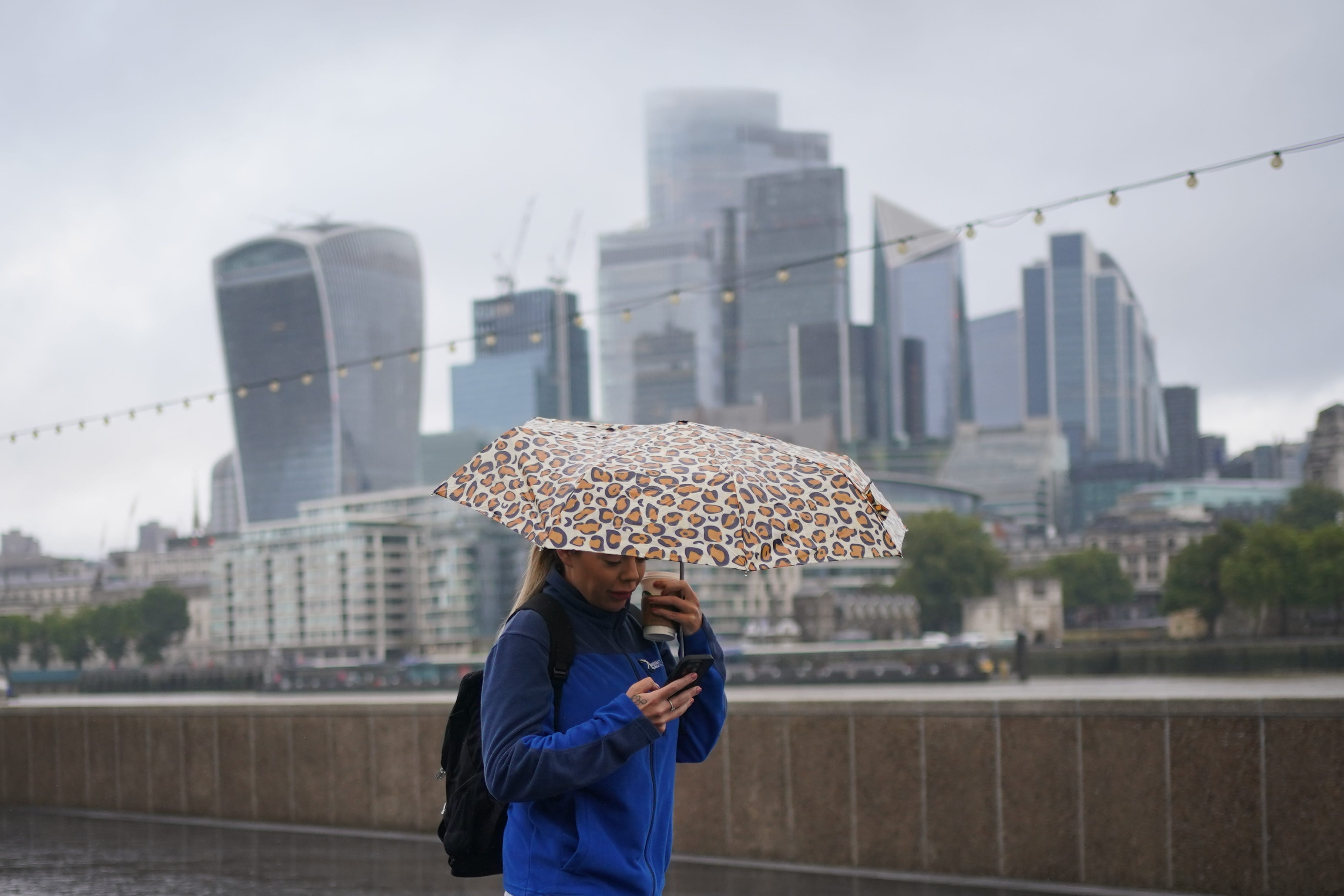UK economy flatlines in July for second month running
The Office for National Statistics said gross domestic product (GDP) recorded no growth in July.

Your support helps us to tell the story
From reproductive rights to climate change to Big Tech, The Independent is on the ground when the story is developing. Whether it's investigating the financials of Elon Musk's pro-Trump PAC or producing our latest documentary, 'The A Word', which shines a light on the American women fighting for reproductive rights, we know how important it is to parse out the facts from the messaging.
At such a critical moment in US history, we need reporters on the ground. Your donation allows us to keep sending journalists to speak to both sides of the story.
The Independent is trusted by Americans across the entire political spectrum. And unlike many other quality news outlets, we choose not to lock Americans out of our reporting and analysis with paywalls. We believe quality journalism should be available to everyone, paid for by those who can afford it.
Your support makes all the difference.The UK economy flatlined in July for the second month in a row, according to the latest official figures, as the Chancellor said she is “under no illusion about the scale of the challenge” the country faces.
The Office for National Statistics (ONS) said gross domestic product (GDP) recorded no growth in July.
Economists had been expecting GDP to edge up by 0.1% in the month, according to a consensus provided by Pantheon Macroeconomics.
The UK held a general election at the beginning of the month, with some recent surveys suggesting a post-election increase in activity as businesses held out for political stability.
The latest data comes after the economy continued its recovery from recession at the end of last year, with growth of 0.6% between April and June.
It showed the country was turning a corner after dipping into a technical recession, which is defined as two consecutive quarters of negative growth.
But hopes of a stronger recovery could falter after two months of stagnating growth.
Chancellor Rachel Reeves said: “I am under no illusion about the scale of the challenge we face and I will be honest with the British people that change will not happen overnight.
“Two quarters of positive economic growth does not make up for 14 years of stagnation.”
She stressed that the Government was “not going to be able to turn everything around in one night, or indeed in one budget”.
“That is why we are taking the long-term decisions now to fix the foundations of our economy,” Ms Reeves said, adding that it would work to “bring stability back to the economy and work in partnership with business to rebuild our country and make it better off”.
The ONS’s data also showed that, despite July’s zero growth, GDP increased 0.5% in the three months to July compared with the three months to April.
This was underpinned by a more steady services sector which increased by 0.1% in July, but by 0.6% across the three months to July.
The accommodation and food and beverages category rose by 0.9%, with accommodation, including hotels, the biggest contributor with 2.2% growth recorded during the month.
It came amid a busy summer of sport with England reaching the Euro 2024 final and the Paris Olympics taking place.
The healthcare sector also benefited from less strike action among workers, including junior doctors, during July compared with June.
On the other hand, the ONS said architects and engineers dragged on growth, while it was a weaker month for manufacturing and construction.
Suren Thiru, economics director for the Institute of Chartered Accountants in England and Wales, said: “These figures confirm that the UK economy struggled for momentum in the aftermath of the general election as falling manufacturing and construction output caused overall activity to flatline in July.”
He also said growth could slow further in the coming months with “higher energy bills and expected tax rises likely to trigger renewed restraint in spending and investment”.
The Labour Government will set out its plans for public spending and taxes in the autumn Budget at the end of October.
Research institute the National Institute of Economic and Social Research (NIESR) said it was forecasting a 0.2% increase in GDP for the third quarter of 2024, July to September, driven by the services and construction sectors.
Rob Wood, chief UK economist for Pantheon Macroeconomics, said GDP was “dragged down by erratic sectors” and that he is expecting a “substantial rebound” in economic growth in August, as manufacturing and construction recover.
He also said consumer spending could “keep rising as the prospect of interest rate cuts and a more stable political and economic environment allow households to lower their saving rate” during the second half of 2024.
Pantheon said its third quarter GDP forecast was a “close call” but it was predicting 0.4% growth.
George Buckley, chief European economist at Nomura, agreed that the figures are based on “volatile” data, adding that it is “particularly good” to have not seen any contraction in GDP since the end of last year.
“The fact that we’ve got still-strong services inflation and also economic growth, which is not falling, is good news and suggests that the Bank of England, when it thinks about cutting interest rates, will not want to do that too quickly.”
He said future rate cuts could come at a “quarterly pace” rather than “back-to-back”, after the Bank decided to reduce interest rates in August for the first time since 2020.